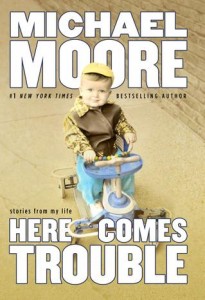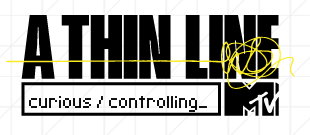It seems as if the theme for this summer is self-care and care of the self. I have brought it up several times on this blog, with entries about (feminist ethics of) Care of Self (help) sources, and personal reflections on my own need for care outside of the academy. It’s also implicit in my thinking through what a troublemaking app might look like. And, it has been a central part of my everyday (or, every other day) practices as I train to run a 5K in September (using a couch to 5K app that I wrote about briefly).
Self-care/care of self brings together many different ideas that I’m thinking about right now, including:
Virtue ethics VE is all about caring for the self; practicing/developing virtue involves cultivating certain attitudes and engaging in specific practices that promote living well (whatever that means…my current manuscript includes an entire chapter on critically thinking through the problems and possibilities of flourishing/living well as ethical goals, and on how living well relates to the good/livable/bearable/unbearable life).
Troublemaking/troublestaying Troublemaking and troublestaying are also about care: paying attention, being curious, caring about the world, and caring for self through self-critique and critical and creative self-reflection. I’ve certainly written about care a lot on this blog. Just check out my care tag.
Foucault Foucault is an important source as I think through my own vision of troublemaking as a virtue and its relation to feminist ethics. Foucault’s later writing on care of the self (and self-writing and technologies of the self) is central to my own imaginings of what an ethics of care that isn’t necessarily careful (or comforting) might look like. Plus, my biggest inspiration for troublemaking as a virtue is Judith Butler; she draws a lot of inspiration for her ethical projects from Foucault.
Feminist ethics of care One key tradition within feminist ethics is a feminist ethics of care. I am interested in positioning my own vision of feminist ethics beside/in relation to (but not necessarily within) this tradition. I aim to trouble and rethink what care could me and how it might connect with making and staying in trouble (yes! as a troublemaker, I like putting things together–like care and trouble–that seem to be radically opposed).
Self-help literature/products Self-help books and products (smartphone apps, websites, etc) are promoted as ways to care for your Self. In some ways, I was raised on self-help speak. Not by my mom; she liked to tell family stories and talk about literature, American history and art. But by my dad. An ordained Lutheran pastor with an MBA (and a PhD in church history with a dissertation on Finnish radicals, unions and copper mining in the upper peninsula of Michigan–what an interesting mix, huh?), he didn’t just read self-help books (a couple favorites: The Power of Positive Thinking, Chicken Soup for the Soul, Don’t Sweat the Small Stuff) he used their slogans to shape our family traditions. Every Christmas he would ask us to go around the table and answer: What 3 things did you accomplish this year? What 3 things do you want to accomplish in the upcoming year? I must confess that I liked this tradition, which ended a few years before my mom died, even as I dislike self-help books and their simplistic, business-oriented frameworks. I am not interested in using self-help logic (framework/language) in my articulation of troublemaking as a form of (self)care. However, I do need to come to terms with how self-help literature has shaped my thinking by engaging with it directly. Plus, I like making trouble for self-help (by disrupting it, playing with it, uprooting it) because I see its production of easy, soundbite answers that encourage us to stop thinking and just start doing as having seriously harmful effects for critical and creative thinking, feeling and engaging.
Blog writing/blogging For some time now, I have been interested in reflecting on how blog writing contributes to the development of moral/ethical selfhood. Based largely on my own experiences as a blogger, I see blog writing and engaging to be important ethical practices that encourage us to make/stay in trouble, and to be curious, critical and creative. These practices can also enable us to care for our selves–for example, writing/engaging on my blog has played a central role in my efforts to grieve/process/cope with my mom’s death in 2009. What would it mean to think of a blog (or blogging) as more than a space for superficial confession–a dumping ground for every thought and feeling that you might have, but as a critical and creative space that enabled you to engage in ethical practices that contributed to your own health and well-being?
I am in the process of researching/writing a chapter for my manuscript on care and troublemaking. One focus of this chapter will be on putting Foucault and his care of self into conversation with a feminist ethics of care (and also explicitly and/or implicitly bringing in the above resources). Right now, I’m especially interested in devoting attention to what Foucault’s care of the self is. Here are some sources that I will review in the next few days (or weeks, everything seems to take longer in the summer–especially when it is August 1st and I haven’t started prepping for the one class that I’m teaching this fall):
- Foucault, Michel. “Self-writing” in Ethics.
- Foucault, Michel. “Technologies of the Self” in Ethics.
- Foucault, Michel. “The Ethics of the Concern for Self as a Practice of Freedom” in Ethics.
- Crampton, Jeremy W. “Part II: Technologies of the Self” in The Political Mapping of Cyberspace. (includes a section entitled: “Resistance: blogging as self-writing”)
- Fletcher, Peter. “Why I’m Interested in Self-Writing“
- Theory Teacher’s Blog. “The Ethics of Teaching: Some Small Advice for New Teachers”
- Heyes, Cressida. “Foucault Goes to Weight Watchers” in Hypatia (excellent article. wish I could get the image of Foucault at Weight Watchers out of my head…)
Note: When I first started writing this entry, I had planned to give a brief introduction to the topic of Foucault and care of the self and then a close reading of “self-writing.” That will have to wait for later. For now, I’m glad that I was able to articulate some of my thoughts about influences for my chapter.
 Last week, I came across Michael Moore’s new book of stories about his own life, Here Comes Trouble. Here’s how he briefly describes it on his blog (italics are mine): “It contains two dozen short stories, all based on events in my early life, before I became a filmmaker. They tell how, from a young age, the “personal” in my life slowly boiled up and exploded, quite unexpectedly, into the political.” I’m interested in reading more about how Moore envisions himself as trouble. (I’ve already written a little bit about his valuing of trouble/troublemaking here.) I’m also really interested in how he understands the connections between the personal and the political (and if he cites feminism in his understanding).
Last week, I came across Michael Moore’s new book of stories about his own life, Here Comes Trouble. Here’s how he briefly describes it on his blog (italics are mine): “It contains two dozen short stories, all based on events in my early life, before I became a filmmaker. They tell how, from a young age, the “personal” in my life slowly boiled up and exploded, quite unexpectedly, into the political.” I’m interested in reading more about how Moore envisions himself as trouble. (I’ve already written a little bit about his valuing of trouble/troublemaking here.) I’m also really interested in how he understands the connections between the personal and the political (and if he cites feminism in his understanding). Seeing this book title reminded me of another trouble memoir I recently came across: Christine O’Donnell’s Troublemaker: Let’s Do What it Takes to Make America Great Again. I think it might be incredibly useful to analyze both of these books as I continue to work on complicating and clarifying what I mean by making and being in trouble. Both authors want to claim the role of making/being in trouble, yet each has very different sets of political goals. How do we distinguish between their uses (and valuing) of trouble? This reminds me of some recent discussions about the similarities and differences between tea party members (O’Donnell was a tea party candidate) and Occupy Wall Street organizers and participants (Moore is a strong supporter of OWS and is possibly planning to do a documentary about them). Check out The Week’s recap of these discussions from earlier in October, Occupy Wall Street: The Left’s Tea Party?
Seeing this book title reminded me of another trouble memoir I recently came across: Christine O’Donnell’s Troublemaker: Let’s Do What it Takes to Make America Great Again. I think it might be incredibly useful to analyze both of these books as I continue to work on complicating and clarifying what I mean by making and being in trouble. Both authors want to claim the role of making/being in trouble, yet each has very different sets of political goals. How do we distinguish between their uses (and valuing) of trouble? This reminds me of some recent discussions about the similarities and differences between tea party members (O’Donnell was a tea party candidate) and Occupy Wall Street organizers and participants (Moore is a strong supporter of OWS and is possibly planning to do a documentary about them). Check out The Week’s recap of these discussions from earlier in October, Occupy Wall Street: The Left’s Tea Party?

